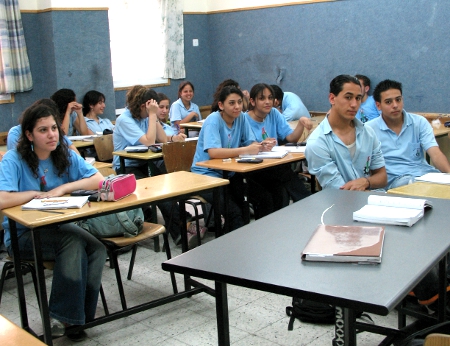Kids Love Science, Teens Less So

Little kids are fascinated by science and very open to learning about how and why things work. But, as they age, that interest and curiosity tends to wane, and many students end up instead fearing the subject — a fact too often reflected in test scores. In Texas, for example, only 67 percent of students pass the science portion of the Texas Assessment of Knowledge and Skills exam, while 90 percent pass the TAKS English component, the Dallas Morning News reports.
This statistic disturbs Greg Hale, director of the University of Texas-Arlington’s Science and Career Education Center. “It’s a matter of emphasis,” Hale tells the newspaper. The TAKS exams focus on English and math, so teachers do, too. Another problem, he says, is that science requires a great deal of hands-on projects, which need to be properly taught. At a recent UT-Arlington summer session of science lessons for middle-school students, active-learning techniques were emphasized, and the students all excelled.
But replicating those techniques in classrooms isn’t easy, according to Hale, because too few science teachers are qualified to teach the subject, so they aren’t capable of implementing them. Most elementary school science teachers do not have even basic science training. At the middle- and high-school level, many have science backgrounds, but not necessarily in the right areas. In addition, not enough students show an aptitude or willingness for scientific inquiry–the ability to ask questions and find the answers on their own. Physics teacher Carlos Reza tells the paper: “You ask them to think, and it’s almost like it hurts their brain.”
Filed under: K-12 Education News
Tags: Research, Research on Learning, Science Education, Science Teachers, Teacher Training








